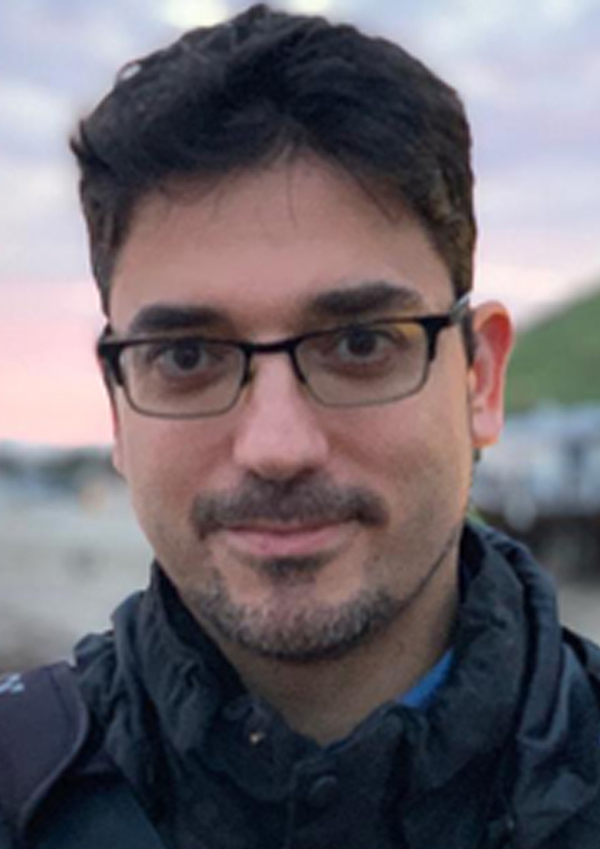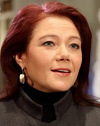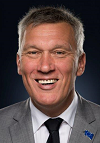|
03.11.2023
|
Dr. Ingo Bott +++++ POSTPONED! NEW DATE: DECEMBER 22nd (via Microsoft Teams, link will follow) ++++

Law within the European Union; Human Rights
- Judicial organs in the European Union
- Normative groundwork of the European Union
- Human Rights and European Integration
Abstract ⊻
Prof. h.c. Dr. Ingo Bott (UTP del Perú)
Lawyer and partner at “Plan A – Kanzlei für Strafrecht”
Honorary Professor for criminal law and compliance at Universidad Tecnológica del Perú
Expert for Criminal Law for the Council of Europe
Law within the European Union; Human Rights
Our workshop will begin by dealing with the sources of European Union Law. We will learn and discuss how European institutions define the normative groundwork upon which the Union is supposed to grow. Another main topic will be how and why Human Rights apply when talking about the European Union and its institutions.
The lecture is meant to be and will be interactive. Active participation and discussion is highly encouraged. We will follow a very practical approach dealing with real cases and decisions. Exemplary scopes are: freedom of speech; migration; labour mobility; Brexit; Foreign relations; criminal investigation and prosecution beyond national borders.
Literature and links
- Herdegen, Matthias: Europarecht, 15. Auflage, 2013.
- Meyer-Ladewig, Jens; Nettesheim, Martin; von Raumer, Stefan: Europäische Menschenrechtskonvention, 4. Auflage, 2017.
- Oppermann, Thomas; Classen, Claus Dieter; Nettesheim, Martin, Europarecht, 7. Auflage, 2016.
- https://europa.eu/european-union/topics/human-rights_en.
- https://eurolex.europa.eu/summary/chapter/human_rights.html?root_default=SUM_1_CODED%3 D13.
CV ⊻
Dr. Ingo Bott
Lawyer at law firm Plan A – Kanzlei für Strafrecht, Düsseldorf, Germany
Expert for Criminal Law for the Council of Europe
Short biography
Dr. Ingo Bott, lawyer and specialist attorney for criminal law, is founder and partner of Plan A - Kanzlei für Strafrecht. The law firm is based in Düsseldorf, Germany, but acts nationwide and internationally in cases involving white collar crime, compliance and “classic” criminal law. Dr. Ingo Bott held numerous lectures and workshops in Germany and abroad. Among others, he taught European law in Russia, lectured on environmental criminal law in Venezuela and on issues of transparency in criminal proceedings in Mexico. He also represented the Council of Europe in Romania on several occasions as an expert on white collar crime. In addition to his legal work, he writes novels. A new crime series, starting with debut PIRLO – Gegen alle Regeln, published by S. Fischer Verlag, was released in August.
Contact: bott∂kanzleiplana.de
|
| |
|
|
10.11.2023
|
Prof. Dr. Caroline Y. Robertson-von Trotha

Europe meets the others – the others meet Europe
- Theories of identity and diversity
- Concepts of integration in European societies
- Cultural pluralism and multiculturalism in Europe
Abstract ⊻
Prof. Dr. Caroline Y. Robertson-von Trotha
Founding Director of ZAK | Centre for Cultural and General Studies
Karlsruhe Institute of Technology (KIT)
Europe in diaspora: Europe meets the others – the others meet Europe
In the course of globalization and internationalization, people of different cultures are characteristic for modern European societies. Only meeting with the cultural “other” raises awareness for the own cultural identity, for cultural similarities and differences. Accepting other cultures presumes openness for cultural dialogue on the one hand. On the other hand it implies limits of tolerance towards values and norms of foreign cultures that can be in extreme contradiction with existing values and norms of the receiving country. Due to the multicultural composition of European cities, with migrants now living there in the third and even fourth generation, the very concept of “other” has to be questioned.
Where European cultural dialogue is constrained it is necessary to question the legal framework of living together. The receiving country can make specific integration offers, such as language courses. Cultural dialogue is only possible if the host society is open regarding other cultures and if migrants are willing to accept the major underlying democratic conditions in the receiving country. Integration in following generations is dependent on many factors, particularly on inclusive practices, levels of education and attitudes of the first generation towards their new home.
Regarding the development of European societies this seminar focuses on:
- Theories of identity and diversity
- Concepts of integration in European societies
- Cultural pluralism and multiculturalism in Europe
The seminar aims to challenge the sociopolitical discourse regarding identity and diversity in Europe.
Literature
- Barrett, Martyn (2013): Interculturalism and Multiculturalism: Similarities and
Differences. Council of Euope Publishing.
- Höllinger, Franz / Hadler, Markus (Hg.) (2012): Crossing Borders, Shifting
Boundaries. National and Transnational Indentities in Europe and Beyond. Campus.
- Kusenbach, Margarethe / Paulsen, Krista E. (eds.) (2013): Home. International
Perspectives on Culture, Identity and Belonging. PL Academic Research.
- Robertson-von Trotha, Caroline Y. (ed.) (2011); Europe: Insights from the Outside (=
Interdisciplinary Studies on Culture and Society, Volume 5).
- Robertson-von Trotha, Caroline Y. (Hg.) (2019): Diaspora. Netzwerke globaler
Gemeinschaften (=WIKA Report, Band 3).
- Robertson-von Trotha, Caroline Y. (ed.) (2022): Realities, Challenges, Visions?
Towards a New Foreign Cultural and Educational Policy (=WIKA Report, Volume 4).
- Schoefthaler, Traugott (2007): Adventures in Diversity. New Avenues for Dialogue
between Cultures. German Commission for UNESCO.
CV ⊻
Prof. Dr. Caroline Y. Robertson-von Trotha
Founding Director of ZAK | Centre for Cultural and General Studies
Karlsruhe Institute of Technology (KIT)
Short biography
Prof. Dr. Caroline Y. Robertson-von Trotha, born in 1951, is Founding Director of the ZAK | Centre for Cultural and General Studies at the Karlsruhe Institute of Technology (KIT) in Germany, and Professor of Sociology and Cultural Studies. Her research interests include cultural change and globalisation, internationalisation and integration, foreign cultural and educational policy, and the theory and practice of public science. She is coordinator of the German network of the Anna Lindh Foundation (ALF), chairwoman of the Academic Council on Culture and Foreign Policy (WIKA) at ifa (Institut für Auslandsbeziehungen), and member of its advisory board. She is also a member of the advisory council of the Institute for Cultural Policy of the Association of Cultural Policy (Bonn) and spokeswoman of the scientific committee (Kleiner Konvent) of the Schader Foundation (Darmstadt). She was member of the Culture Committee of the German UNESCO Commission. Caroline Y. Robertson-von Trotha is the editor of numerous academic books and publication series. She is initiator and scientific convenor of a variety of teaching formats and public science events.
Contact: caroline.robertson∂kit.edu
|
| |
|
|
17.11.2023
|
Dr. Dr. Jesús Munoz Morcillo

Europe and the Stars – Images, Narratives, and the Embodiment of a Cultural Vision
- Critical awareness-raising of Europe’s cultural identity
- Literary and visual traditions that shape the idea of Europe
- Continuities and transformations of European Symbols
Abstract ⊻
Dr. Dr. Jesús Muñoz Morcillo
Research Associate and Lecturer at the Art History Department (IKB)
Karlsruhe Institute of Technology (KIT)
Europe and the Stars – Images, Narratives and the Embodiment of a Cultural Vision
The idea of Europe as a cultural entity is the result of manifold literary and visual traditions that suggest a civilizing movement from Orient to Occident, from the sunrise to the sunset, from the origin of things to the claim of perfection. An etiological myth about an abducted Asian Princess gave Europe its name, the exile of the Trojan warrior Aeneas that founded Rome gave Europe its political identity, and an Asian prophet called Jesus gave Europe its religion. Consider the European flag: A crown of twelve stars against a sunset-blue sky evokes a rich symbolism that connects Greek and Christian traditions – from Ariadne’s wedding crown (constellation Corona Borealis) to the star crown of the Immaculate. In this seminar, we will focus on canonical – and often ambiguous – narratives and pieces of art that still shape our awareness of Europe in cultural and political terms. We will discuss how strong these visual and literary traditions are, which artifacts and symbols embody them, and to what extent they have changed their meaning since the birth of the European project.
Literature
- Figes, Orlando (2019): The Europeans. Three Lives and the Making of a Cosmopolitan Culture. New York: Metropolitan Books.
- Fornäs, Johan (2012): Signifying Europe. Bristol/Chicago: Intellect.
- Friedmann, Rebecca/Thiel, Markus (ed.) (2016): European Identity and Culture. Narratives of Transnational Belonging. London/New York: Routledge.
- Padgen, Anthony (ed.) (2002): The Idea of Europe. From Antiquity to the European Union. Cambridge University Press.
- Steiner, George (2012 [2004]): The Idea of Europe. An Essay. New York/London: Nexus Institute.
- Wilson, Kevin / von der Dussen, Jan (1995 [1993]): The History of the idea of Europe. London/New York: The Open University/Routledge.
CV ⊻
Dr. Dr. Jesús Munoz-Morcillo
Researcher and Lecturer at the Art History Department (IKB) and the ZAK | Centre for
Cultural and General Studies
Karlsruhe Institute of Technology (KIT)
Short biography
Jesús Muñoz Morcillo is a classical philologist, art historian, researcher and lecturer at the Karlsruhe Institute of Technology (KIT). He studied in Salamanca, Würzburg and Karlsruhe and, thanks to a grant from the Volkswagen Foundation, he was a fellow at the Getty Research Institute (GRI) in Los Angeles (September 2019 to June 2020). From March 2019 until his posting to the USA, he was acting spokesman for the ZAK | Center for Cultural and General Studies at KIT. His most recent publications include the edited volume "Genealogy of Popular Science. From Ancient Ecphrasis to Virtual Reality" (2020, transcript, ed. With Caroline Y. Robertson-von Trotha) and the monograph "La ékfrasis griega, de la Antigüedad a Bizancio" (Peter Lang, in press). His research currently focuses on the reception of ancient descriptions and their influence on early modern visual cultures in art, literature, and science.
Contact: jesus.munozmorcillo∂kit.edu
|
| |
|
| 24.11.2023 |
Prof. Dr. Monika Oberle

The European Union: Institutional Design, Democratic Deficit and Options of Reform
- Competencies and legislative procedures of the EU
- Treaty of Lisbon as an alternative to a European Constitution
- European Commission, Council, Parliament, and Cour
Abstract ⊻
Prof. Dr. Monika Oberle
Professor of Political Science and Civic Education
University of Göttingen
The European Union: Institutional Design, Democratic Deficit and Options of Reform
The European Union (EU)`s political decisions affect the life of citizens in its 28 member states more than ever. Not only the number of its members, but also the Union`s competencies have been growing steadily since its original foundation more than sixty years ago. Furthermore, the EU has been “deepened” by introducing the majority vote to decisions in a growing number of policy areas leading to a loss of national sovereignty, a development which – some argue – the democratization of the Union has not kept pace with. The Treaty of Lisbon, ratified in 2009 as an alternative to the failed Constitution, promised to bring both more efficiency and more democracy to the EU-27+, however, it still needs to prove its problem solving capacities.
The seminar will give an introduction to the main institutions (esp. European Parliament, European Commission, European Council and Council of Ministers), competencies and legislative procedures of the European Union, provide an understanding of the much-discussed problem of the EU`s so-called “democratic deficit” and discuss options of institutional reform, taking a critical look at those brought about by the Treaty of Lisbon.
Literature and Links:
- Hix, S., & Hoyland, B. (2011, 3rd ed.): The Political System of the European Union. Basingstoke et al.: Palgrave.
- Holzinger, K.; Knill, C.; Peters, D.; Rittberger, B.; Schimmelpfennig, F.; Wagner, W. (2005): Die Europäische Union – Theorien und Analysekonzepte. Paderborn u.a.: Schöningh.
- Tömmel, I. (2008, 3. Aufl.): Das politische System der EU. München: Oldenbourg.
- Weidenfeld, W. (Hrsg.) (2013, 3. Aufl.): Die Europäische Union.. München: Fink.
- Wessels, W. (2008): Das politische System der Europäischen Union. Wiesbaden: VS Verlag.
- Warleigh-Lack, A. (2009, 2nd ed.): European Union: The Basics. London: Routledge.
- http://europa.eu (offical site of the European Union).
CV ⊻
Prof. Dr. Monika Oberle
Professor of Political Science and Civic Education
University of Göttingen
Short biography
Monika Oberle has been a University Professor of Political Science/ Didactics of Politics at the University of Göttingen since October 2014, after initially working here as a junior professor from 2011 to 2014. She studied political science in Marburg, London, and Berlin (diploma at the Otto Suhr Institute of the Free University of Berlin) and was a research assistant at the Department of Political Science and its Didactics at the Karlsruhe University of Education in 2006-2011, where she also completed her doctorate (2011, Political Knowledge of the European Union. Subjective and objective political knowledge of young people, Springer VS). At the Università Per Stranieri di Perugia, Italy, Monika Oberle also studied Italian language and culture. She has worked for many years in non-school, non-partisan political education (target groups: students and young adults) as a seminar leader and speaker.
Contact: monika.oberle∂sowi.uni-goettingen.de
|
| |
|
| 01.12.2023 |
Thomas Klöckner

The European Union and LGBTIQ* rights: A conflicted “ally”
- ABC of LGBTIQ* equality
- The EU as an “ally”: Historical, political and legal context
- Current developments: Towards a “Union of Equality”?
- Queer perspectives on the EU
Abstract ⊻
Thomas Klöckner, M.A.
Doctoral researcher in EU & Queer Studies at the University of Tübingen
Scientific Coordinator of the European Centre for Research on Federalism (ECRF).
The European Union and LGBTIQ* rights: A conflicted “ally”
Equality and diversity have been core norms of the European Union (EU) for many decades, and the goal of combatting discrimination based on sexual orientation was already added to the EU Treaties in the late 1990s. Since then, advocacy for the concerns of the LGBTIQ* community has evolved into a significant aspect of the EU’s political agenda. Since 2019, the European Commission, under the presidency of Ursula von der Leyen, has committed itself to create a more equal Union and to foster the rights of sexual and gender minorities. However, LGBTIQ* rights remain a contested issue in the EU. While encouraging milestones have been achieved in some areas and countries throughout the last decade, stagnation or clear steps backwards can be observed in several Member States.
In this seminar, we will first explore the wide range of the queer community and the different dimensions of LGBTIQ* rights. We will then conceptualize the EU as an “ally” by looking at the historic evolution and current state of LGBTIQ* rights in Europe as well as the EU’s competences and decisions on the matter. After examining some of the pitfalls and shortcomings of this practice, we will look at recent developments in some Member States and discuss current EU initiatives to promote LGBTIQ* equality. To conclude, I will give some brief comments on “Queer” research in Political Science and EU Studies.
Literature and Links
- Ayoub, Philip (2016): When States Come Out: Europe’s Sexual Minorities and the Politics of Visibility. Cambridge University Press.
- Ayoub, Phillip; Paternotte, David (Eds.) (2014): LGBTI Activism and the Making of Europe. Basingstoke: Palgrave Macmillan.
- Ayoub, Phillip; Paternotte, David (2019): Europe and LGBT Rights. A Conflicted Relationship. In Michael J. Bosia, Sandra M. McEvoy, Momin Rahman (Eds.): The Oxford handbook of global LGBT and sexual diversity politics. New York: Oxford University Press. DOI: 10.1093/oxfordhb/9780190673741.013.11
- de Groot, David (2023): The rights of LGBTI people in the European Union. Briefing, European Parliamentary Research Service, May 2023 https://www.europarl.europa.eu/thinktank/en/document/EPRS_BRI(2023)747896 (14.09.2023).
- European Commission (2020a): Spotlight on the EU and LGBTI equality, February 2020. https://op.europa.eu/webpub/com/factsheets/lgbti/en/ (14.09.2023)
- European Commission (2020b): Union of Equality. LGBTIQ Equality Strategy 2020-2025, November 2020. https://commission.europa.eu/system/files/2020-11/lgbtiq_strategy_2020-2025_en.pdf (14.09.2023).
- Giegerich, Thomas (Ed.) (2020): The European Union as Protector and Promoter of Equality. Cham: Springer.
- Mos, Martijn (2013): Conflicted Normative Power Europe: The European Union and Sexual Minority Rights. In: Journal of Contemporary European Research 9(1), pp. 78–93. https://www.researchgate.net/publication/288741020_Conflicted_Normative_Power_Europe_The_European_Union_and_Sexual_Minority_Rights (14.09.2023).
- Thiel, Markus (2022): The European Union's International Promotion of LGBTI Rights. London, New York: Routledge.
CV ⊻
Thomas Klöckner, M.A.
Doctoral researcher in EU & Queer Studies at the University of Tübingen | Scientific Coordinator of the European Centre for Research on Federalism (ECRF)
Short biography
Thomas Klöckner (he/him) is a doctoral researcher in EU and Queer Studies. He has graduated from the Master’s program “Democracy and Governance in Europe” at the University of Tübingen in March 2022. His research interests revolve around European equality and diversity politics, LGBTIQ* rights, and constructions and representions of sexual and gender minorities in politics and media. In his research, he critically examines how the EU conceives LGBTIQ* rights and accommodates the vast diversity of the queer community in its equality framework.
Thomas Klöckner is also the Scientific Coordinator of the European Centre for Research on Federalism (ECFR) and responsible for the editorial work on a number of publications, such as the “Yearbook of Federalism”.
Thomas Klöckner is a long-standing member of the “Young European Federalists” (JEF) and a board member of “Tübingen Pride” (CSD Tübingen e.V.).
Contact: thomas.kloeckner∂uni-tuebingen.de
|
| |
|
|
08.12.2023
|
Julian Plottka

European Elections 2024
- How do European elections work?
- What is at stake when citizens’ cast their ballot?
- Will the 2024 European elections trigger EU reforms?
Abstract ⊻
Julian Plottka
Researcher Associate at the Jean Monnet Chair for European Politics at the University of Passau and Rheinische Friedrich-Wilhelms-Universität Bonn.
European Elections 2024
In June 2024, the citizens of the European Union directly elect the Members of the European Parliament. Since the first European elections in 1979, the elections suffer from a low turnout. They are considered secondary to national elections, because in European elections, there is less at stake.
The course will analyse how the European elections and the following process of electing a new European Commission work. Are the European elections are still secondary? Or will EU citizens decide about the composition of the next European Commission, as the concept of the Spitzenkandidaten procedure suggests? What are the topics most likely discussed in the electoral campaigns? Will the new Commission turn these campaign promises into policies? What are the deficiencies of the current system of European elections? Is there a debate on reforming the EU institutions to make them more democratic?
Literature and Links
- Kaeding, Michael/Müller, Manuel/Schmälter, Julia /Hrsg.): Die Europawahl 2019. Ringen um die Zukunft Europas, Springer: Wiesbaden 2020, https://doi.org/10.1007/978-3-658-29277-5.
- Plottka, Julian/Müller, Manuel: Enhancing the EU’s Democratic Legitimacy. Short and Long-Term Avenues to Reinforce Parliamentary and Participative Democracy at the EU Level, Friedrich-Ebert-Stiftung: Democracy and Human Rights, Brussels 2020, https://iep-berlin.de/site/assets/files/1316/fes-study-on-eus-democratic-legitimacy.pdf “
CV ⊻
Julian Plottka
Scientist at the Jean Monnet Chair for European Politics at the University of Passau
Short biography
Julian Plottka is a Research Associate at the University of Passau and at the Rheinische Friedrich-Wilhelms-Universität Bonn. Before joining the universities, he was a Senior Researcher at the Institut für Europäische Politik, Berlin. He has studied political science at the University of Potsdam, Universitet i Bergen and the Free University Berlin. His research covers reforms of the EU political system, its legitimacy, including the European Citizens’ Initiative, and Eu foreign policy with a special focus on the EU’s relations with Central Asia. Mr. Plottka has managed a number of research projects, including the “Study on Strengthening the Democratic Legitimacy of the EU”, the “Study on the European Added Value of the European Citizens‘ Initiative” and the project “The Relaunch of Europe. Mapping Member State Reform Interests”. He is part of the Jean Monnet Network “The EU and the EEU: Between Conflict and Competition, Convergence and Cooperation”.
For his publications, contact details and more information see here: https://www.politik-soziologie.uni-bonn.de/de/personal/plottka-julian
Contact: julian.plottka∂uni-passau.de
|
| |
|
| 15.12.2023 |
Prof. Dr. Dirk Wentzel

Europe seen from Outside: Europe and Its Role in the World
- Some questions about the EU
- Some facts about the EU
- Some facts about the currency EURO
- The EU and its external relations
Abstract ⊻
Prof. Dr. Dirk Wentzel
Professor for Economics and European Economic Relations
Jean-Monnet Chair in European Economic Integration
Pforzheim University
Europe seen from Outside: Europe and Its Role in the World
European integration is a success model without precedent. The biggest internal market in the world and the strength of the European currency signify that the EU is an “economic giant“(Henry Kissinger) that continues to grow. The attractiveness of the European integration for non-EU-members still is enormous as the list of countries – in the Balkans and in former states of the Soviet Union – willing to join the EU shows. An obvious and astonishing discrepancy exists between the interior view of the Europeans, who become more and more aware of their strength, and the exterior view on Europe, which in manifold respects turns out to be more critical. European trade policy is perceived as unfair and protectionist by developing countries; European agricultural policy is an exclusive example of regulatory policy. At the same time, the European’s commitment is perceived as too little regarding peace making and peace keeping missions in global trouble spots. The odds of European foreign policy are an essential characteristic for the outside.
This Jean Monnet lecture aims at a clear outside view on Europe on the basis of academic insights. Economic dynamics and political perspectives need to be developed in equal measure to sustainably strengthen Europe’s importance.
Literature:
- Adam, Hans und Peter Mayer (2014): Europäische Integration, UVK Lucius, UTB-Taschenbuch.
- El-Agraa, Ali M. (2011): The European Union. Economics and Policies, Cambridge University Press.
- Leonard, Dick (2010): Guide to the European Union. The definitive guide to all aspects of the EU, THE ECONOMIST BOOK.
- Neal, Larry (2007): The Economics of Europe and the European Union Cambridge University Press.
- Wagener, Hans-Jürgen und Thomas Eger (2014): Europäische Integration. Wirtschaft und Recht, Geschichte und Politik, 3. Auflage, München.
- Wentzel, Dirk (2006): Europäische Integration. Ordnungspolitische Chancen und Defizite, Schriften zu Ordnungsfragen der Wirtschaft, Band 82, Stuttgart und New York.
CV ⊻
Prof. Dr. Dirk Wentzel
Jean Monnet Chair in European Economic Relations
Professor of Economics and European Economic Relation
dirk wentzel ∂does-not-exist.hs-pforzheim de / www.hs-pforzheim.de/wentzel
Short biography
Dirk Wentzel has been Professor of Economics and European Economic Relations at Pforzheim University since 2003. In 2005 he received an EU-funded Jean Monnet Chair. He has been director of the European Business, Politics, and Culture summer school in collaboration with Pennsylvania State University since 2008. Since 2019, he is also the dean of the economics department.
Dirk Wentzel studied economics at the University of Bonn. He earned his doctoral degree in 1994, with a dissertation in monetary theory at the University of Marburg. In 2001 he completed his habilitation in media economics, also at the University of Marburg. He has had multiple research stays abroad, including at Lomonosov Moscow State University, at New York University, and at Pennsylvania State University. He was a visiting professor and Humboldt fellow between 2000 and 2002 at Penn State, where he also founded a summer school in cooperation with the Smeal College of Business.
Dirk Wentzel was a scholarship student of the Adenauer Foundation, for which he serves as trustee today. He was awarded the Herbert Quandt Prize for his dissertation and received a research fellow-ship from the Humboldt Foundation between 2000 and 2002. In 2011 he was named President of the Karlsruhe-Pforzheim region for the Humboldt Foundation. In 2013 he became president of the Forschungsseminar Radein (www.radein.de). Dirk Wentzel has been the editor of Schriften zu Ordnungsfragen der Wirtschaft since 2010 and writes regularly for Börsen-Zeitung.
Competences
Dirk Wentzel concentrates on institutional and regulatory economics in the tradition of Walter Eucken’s Freiburg School and Jean Monnet’s concept of European integration. In the course of completing his dissertation and habilitation (both supervised by Alfred Schüller) numerous articles of his have received accolades. As the new editor of Schriften zu Ordnungsfragen der Wirtschaft (founded by K. Paul Hensel), Wentzel is in charge of spreading regulatory policy opinions and supervising dissertations. Since being named Jean Monnet Professor for European Integration by the EU Commission in 2005, his publications have focused on European affairs. He has authored multiple books in addition to his monographs, some in collaboration with his colleagues. Since 2011 he has been a regular contributor to Börsen-Zeitung, concentrating on international economic policy and European integration. He also writes frequently for other national and regional newspapers. Since the beginning of the financial crisis in 2008 Dirk Wentzel has published numerous articles on stability policy and monetary constitution in Europe. He organized a large third-party EU project and in 2013 ran an international conference on European financial market architecture (with the proceedings published in a special 2013 volume of Kredit und Kapital). The proposals on state bankruptcy acts he developed with Hanno Beck have gained special attention among parliamentarians and legal professionals. In the future he will continue to devote time to stabilization policy in states with excessive debt. In recent research and seminars, Dirk Wentzel has put more emphasis on sport economics – a rich research area that brings together regulatory economics and game theory and is amenable to empirical study. His work covers the regulatory conditions in European sport markets, the rules for financial fair play and the application of financial market theory to sport and talent promotion. In addition to his other publications, Wentzel is completing an edited volume on basic questions of social market economy with regard to existing theory and to current and new fields of application. Dirk
Wentzel makes every effort to link research and teaching. He currently supervises a huge variety bachelor’s and master’s theses.
Professional Activities
- Director of the Summer University in Collaboration with Penn State
- Editor of Schriften zu Ordnungsfragen der Wirtschaft, Verlag Lucius and Lucius, Stuttgart
- Trustee of the Konrad-Adenauer-Stiftung
- President of the Humboldt Gesellschaft, Karlsruhe-Pforzheim
- President of the International Forschungsseminar Radein
- Founding member of the Marburg Gesellschaft für Ordnungsfragen (MGOW)
Awards
- Appointed Jean Monnet Chair of the EU Commission, 2005
- Research Fellow of the Alexander von Humboldt Stiftung, Feodor Lynen Scholarship, 2000–2002
- Herbert Quandt Award from the TU Dresden for the best dissertation on system transformation, 1995
- Scholarship student of the Konrad-Adenauer-Stiftung; division for gifted and outstanding students, 1986
Selected Publications
- Wentzel, D. (2013): Ordnungspolitische Bausteine einer europäischen Stabilitätsverfassung. In: I. Pies (Hrsg.): Das weite Feld der Ökonomik: Von der Wirtschaftsforschung und Wirtschaftspolitik bis zur politischen Ökonomik und Wirtschaftsethik, Schriften zu Ordnungsfragen der Wirtschaft, Bd. 97, Stuttgart
- Wentzel, D., Beck, H. (2012): Ist der Euro noch zu retten? In: Landeszentrale für politische Bildung Baden-Württemberg (Hrsg.): Deutschland und Europa, Sonderheft zur Eurokrise, April 2012
- Wentzel, D., Beck, H. (2011): Ordnungspolitische Überlegungen zu Staatsinsolvenzen und einer Insolvenzordnung für Staaten. In: Ordo Jahrbuch für die Ordnung von Wirtschaft und Gesellschaft, Bd. 62, 71–100
- Wentzel, D. (2002): Medien im Systemvergleich – Eine ordnungsökonomische Analyse des deutschen und amerikanischen Fernsehmarktes, Habilitationsschrift, Schriften zu Ordnungsfragen der Wirtschaft, Bd. 69, Stuttgart
- Wentzel, D. (1995): Geldordnung und Systemtransformation: Ein Beitrag zur ökonomischen Theorie der Geldverfassung. Schriften zum Vergleich von Wirtschaftsordnungen, Bd. 50, Stuttgart. (Ausgezeichnet mit dem Herbert-Quandt-Förderpreis)
Contact: dirk.wentzel∂hs-pforzheim.de
|








